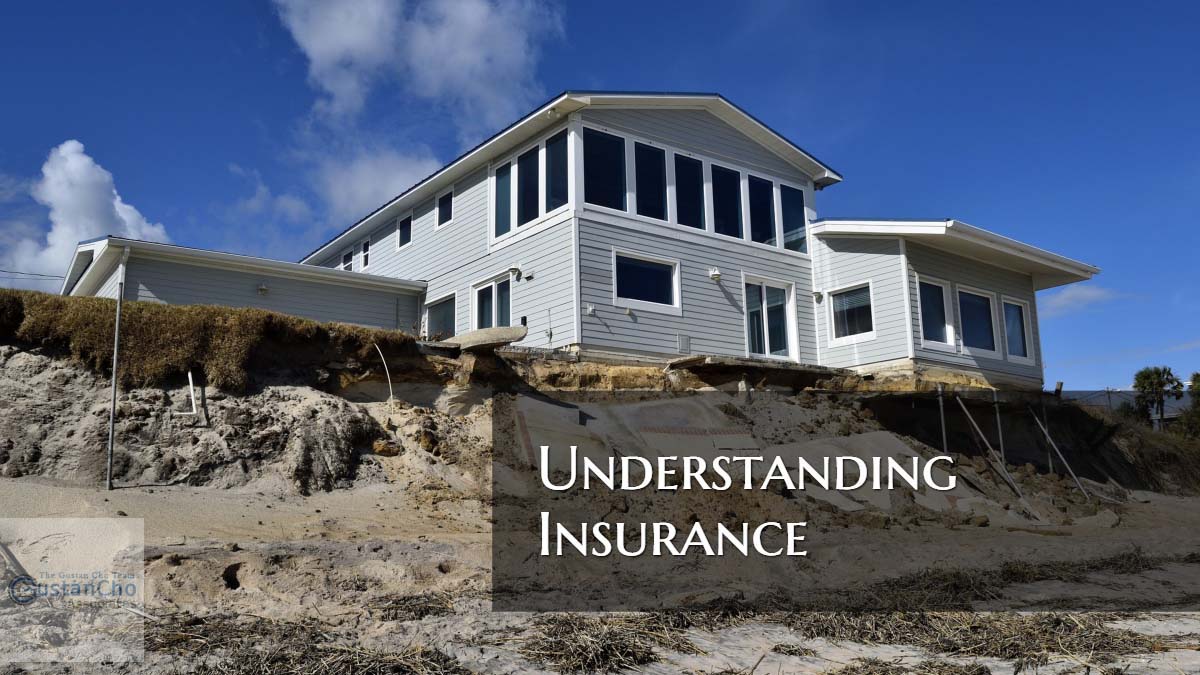This guide covers understanding insurance protection for consumers and homeowners. Good morning open enrollment blog for day 1 of the open enrollment period to purchase health insurance. Avoid high out of pocket cost and medical bills by shopping for health insurance with multiple carriers. Get fully covered, do you have gaps in your insurance?
If you were hospitalized, would your family members and yourself receive $1000 per day? If not we need to talk about all your money that is in the trash.
Find the best options for your individual or business need. Get the subsidy discount if you qualify and get your questions answered because the best client is a client who understands what they are buying. In this article, we will discuss and cover understanding insurance protection for consumers and homeowners.
Understand Insurance: Getting Covered Today For Health Insurance
Sign up on the phone or come into one of our offices and get covered. Licensed agents who sell to BCBS, Aetna, Humana, Coventry, united health and more are available to sit with you on a phone call. Most insurance brokers will sit at your home or office.
They will explain the many features included in each plan, assist with a deductible, assist with deductible insurance, and assist each individual or company with full protection.
The top causes of financial loss are bankruptcy, divorce, and medical bills- let’s knock down one and ensure that any unexpected injury or illness will get covered and let’s avoid medical bills together.
Understand Insurance Before You Buy
Don’t sign a policy until you know exactly what’s covered — and what’s not.
Understanding Insurance Shopping
Consumers should shop at various insurance companies in finding the best insurance carrier and health plan daily-around. Avoid the frustration of long hold times and not getting signed up after being on hold for hours while talking to unlicensed people in the marketplace who sale the wrong plans
Deal with experts who can reduce the application time, cost and confusion of the affordable care acts new trends and many plan option. Insurance companies will pull consumer credit.
Bad credit and lower credit scores will affect insurance premiums. Lower credit score policyholders will definitely get higher insurance premiums. It is best to get three to five different quotes by insurance carriers. Often it is best to consult with an insurance broker than a State Farm or Farmers insurance agent. An insurance broker has lists of insurance companies and compares policy versus premiums from multiple carriers. Agents who work for American Family, State Farm, Allstate, Farmers are only tied to the products offered by their companies. They cannot shop outside the box.
Understanding Insurance: Homeowners Insurance
Homeowners insurance premiums are the payments you make for your policy every month, quarter, or year. Lenders want this insurance for any home with a mortgage, since it protects their investment. Remember that floods and earthquakes are usually not covered, so separate policies will be needed for the best coverage. First, determine how much it would cost to rebuild your home, and make a complete list of your valuables. Check your policy at least once a year to ensure it reflects rising costs and any renovations you’ve done, so your home stays fully covered.
Lenders will require mortgage borrowers to have homeowners’ insurance. Homebuyers and/or homeowners do not have to pay for homeowners’ insurance premium prior to closing.
Just get the dec page of homeowners insurance policy. Homeowners Insurance Premium does not have to be paid prior to closing. It needs to be paid at closing. Homeowners Insurance Premium is considered as part of closing costs. All closing costs can be paid by seller concessions and/or lender credit.
Understanding Insurance: Insurance Premiums
There are so many types of insurance to protect consumers and homeowners. Insurance is protection by the insurance company in the event something bad happens.
For a premium, the insurance company will insure the insured on the type of insurance the insured purchased. For example, an average brand new car costs $35,000. The premium on this car for a good driver can be $600 per year which is $50 dollars per month.
For paying the premium of $600 per year on auto insurance, the owner of the car will get $35,000 worth of coverage in the event anything happens to his brand new car. The wide variety of insurance packages. The various different types of insurance available to consumers and homeowners.
Understanding Insurance: Most Common Types of Insurance
There are types of insurance covering the following:
- Life insurance.
- Business insurance.
- Trauma protection.
- Title insurance, mortgage insurance, etc. offered by various companies can cause confusion in the mind of a person looking for a suitable insurance package.
- Bad types of insurance deals can lead to a number of financial and other problems in the long run.
- Thus, it is better to get professional advice from insurance experts and compare the various insurance packages with their help.
Insurance Focus is a company providing insurance advice regarding varied insurance packages according to the budget and the needs of their clients. The areas of work have been listed here.
Understanding Insurance: Life Insurance
Insurance Focus life insurance quotes help people in comparing the features of life insurance packages offered by various leading companies. This includes the amount, coverage, and exclusions. Sound professional advice is given to the client regarding the various options that are available for him/her. Life insurance is important to ensure the financial stability of your loved ones in the event of your demise and getting the right advice from experts in the field helps you clinching the best deal from an insurance company.
Understanding Insurance: Trauma Insurance
Trauma insurance provides financial cover for dealing with specific pathological conditions such as cancer, cardiac arrest, etc. Trauma insurance ensures that there is no financial burden on you to pay the medical bills.
The trauma insurance policies of various insurance companies have different clauses and rules along with premiums, pay-out amounts, illnesses covered, and more.
Getting the quotes of various top-notch insurance companies and comparing them with the help of experts ensures that you get the best insurance policy in complete accordance with your needs. There can be no doubt about the decision taken after extensive consultations with licensed experts.
Stop Guessing, Start Understanding
From auto to home to health, get a clear view of how insurance really works.
Understanding Insurance: Business Insurance
Business insurance helps in running the business smoothly even in the event of unforeseen problems. Key person insurance compensates for the financial loss that a business suffers due to the death or long-term absence of a person crucial for running the business. Business insurance rolls liability, property, and workers’ compensation coverage into one package that keeps your company running even when the unexpected happens.
Business expense insurance helps in paying the business costs every month in the event of the business owner suffering a serious illness or injury which makes him/her incapable of working.
Buy/Sell insurance enables the business partners of a company to buy the shares of another partner when he/she dies or becomes incapable of running the business due to injury or illness. The financial experts help business owners in zeroing in on the best business insurance policy after a careful assessment of the risks that the business faces or may face in the future. Professional help ensures that your business is firmly protected with a good insurance policy. Quote comparison and expert advice are also available for income protection and total and permanent disablement insurance.
Mode of Operation
Learn the basics of insurance, from auto and home coverage to mortgage insurance, and guard your finances effectively. The client simply needs to enter various details in an online form. Insurance focus researches the insurance policies of various top insurance companies according to the specific requirement of a client. Thereafter, the quotes of various insurance policies along with their pros and cons are communicated to the client. Recommendations are also given by experts.
Everything You Need to Know About Understanding Insurance
Understanding insurance is crucial in a world where surprises happen and costs can soar. Insurance is like a financial safety net for your health, home, and car. With the right coverage, you can worry less and live more. This guide breaks down the basics, the types you might need, and easy tips for choosing the right policy. Once you know how insurance works, you can protect your finances and future more confidently.
What is Insurance? A Beginner’s Guide to Understanding Insurance Basics
Insurance is an agreement between you and an insurance company. You pay money regularly, called premiums, and in return, the company promises to pay for certain losses or damages when they happen. This includes car accidents, health issues, or natural disasters.
By getting insurance, you are shifting the financial risk from yourself to the company, which can limit how much you have to pay out of pocket when bad things happen. The system works because many people pay premiums, and the money is used to help the few who need to make a claim.
You will encounter a few important parts when you learn the insurance basics. The policy is the document that explains exactly what is covered, what is not, and the rules you must follow. The premium is the amount you pay for the coverage. A deductible is the money you must pay yourself before the insurance company helps you with a claim. Lastly, the limits are the highest amount the insurer is willing to pay for a claim. You can often change the coverage to fit your life, but read the policy carefully to know what you are buying.
Why Understanding Insurance is Key to Your Financial Security
Knowing how insurance works is crucial to keeping your money safe. If you don’t have the right coverage, one major event—even a car crash or a hospital stay—can wipe out your savings or push you into debt. Insurance pays immediate bills and hidden costs, like lost paychecks or court fees.
For example, in a world where lawsuits are common, liability insurance can keep your assets out of harm’s way. When you understand how these plans work, you can shop smarter, haggle for lower premiums, and skip the extras you don’t need.
Plus, many forms of coverage, like car insurance in most states, are legally required, so keeping the right policy helps you avoid fines and keeps your driving privileges intact. Ultimately, the more you learn about insurance, the better choices you can make, leaving you free to chase your goals instead of stressing over possible disasters.
Your Insurance Toolbox: Key Types of Coverage
Insurance is like a toolbox, with different types of coverage for different risks. We can break it down into four major areas: personal, property, health, and liability.
Personal insurance includes plans like life and disability that protect your paycheck and secure your family’s financial future.
Property insurance looks after big-ticket items such as your home and car—health insurance steps in when you need medical care. Finally, liability insurance defends you when someone else claims you caused them harm or damage.
Here’s a Quick Guide to the Main Types of Insurance So You Can See What’s Out There
Auto insurance is required almost everywhere. It protects you from the costs of crashes, theft, and if you hurt someone else. Most policies have three main parts: bodily injury liability (for other people’s injuries), property damage liability (for damage to other people’s property), and comprehensive coverage (for things like hail or vandalism that aren’t crashes).
Health insurance helps you pay for medical care. It covers doctor visits, hospital stays, and prescription drugs.
The main options are HMOs and PPOs. HMOs need you to get a referral to a specialist, while PPOs let you see out-of-network doctors at a higher cost. With medical bills rising, comparing different plans from state marketplaces or your employer can save you a lot of money.
Understanding Other Types of Insurance
Life insurance pays a sum of money to your beneficiaries when you die. There are two main types: term life, which is cheaper and covers you for a specific time (like 20 years), and permanent life, which lasts your whole life and builds cash value but costs more each month.
Renters insurance covers your stuff if it’s stolen or damaged (like from a fire) and includes liability protection if someone gets hurt in your apartment.
It’s inexpensive and vital for people living in rental units, yet many skip it. Disability insurance replaces part of your income if an illness or injury keeps you from working. You can choose a short-term or a long-term policy, depending on how long you think you’ll be out of a job.
Umbrella, Travel, and Pet Insurance
Umbrella insurance kicks in when you reach the liability limits of your other coverage, like home or auto. It’s especially smart for people with many assets, since an expensive lawsuit could put everything you own at risk.
Travel insurance can save your wallet if you need to cancel a trip, get sick while abroad, or lose your luggage. It’s particularly handy for international flights, where a small problem can become a big expense.
Pet insurance helps cover vet bills, whether your pet needs treatment for an illness, an accident, or a routine checkup. It softens the blow of the rising pet care costs, making it easier to say yes to the care your pet needs.
Protect What Matters Most
Learn how different insurance policies safeguard your home, car, and family.
Understanding Homeowners Insurance: What It Covers and Why You Need It
Homeowners insurance is your go-to shield for your house and belongings. It protects you from fire, theft, windstorms, and natural disasters. A typical policy, known as HO-3, gives you four main types of coverage:
- Dwelling coverage for the house structure.
- Personal property coverage for your stuff inside the home.
- Liability protection if someone gets hurt on your property.
- Additional living expenses if you need to live elsewhere while your home is being repaired.
Your premium will vary based on where you live, the value of your house, your credit score, and the deductible you choose. In recent years, the average yearly cost has been around $2,377. Knowing this helps you budget and feel secure.
Mortgage Insurance Premiums: What They Cost, the Different Types, and How to Avoid Them
Mortgage insurance premiums (MIPs) are payments you make to protect your lender if you cannot keep paying the loan. You will usually need this coverage if your down payment is smaller than 20%.
There Are Two Main Types:
- Private Mortgage Insurance (PMI) for conventional loans.
- The Mortgage Insurance Premium (MIP) that comes with FHA loans.
PMI costs 0.5% and 1% of the loan amount each year and is added to your monthly payment. You can get it removed once you own 20% of the house. MIP has an upfront fee equal to 1.75% of the loan amount, plus ongoing premiums that range from 0.45% to 1.05% each year. Unlike PMI, MIP can last for the entire loan unless you refinance.
Understanding Mortgage Insurance
Mortgage insurance isn’t the same as homeowners’ insurance. While homeowners’ insurance protects your possessions, mortgage insurance protects the bank.
If you want to dodge these extra payments, your best move is to put down at least 20% when you buy your home. If that’s not possible, ask your lender if they offer lender-paid mortgage insurance.
In that case, the bank pays the insurance but raises your loan’s interest rate. Knowing the costs of mortgage insurance helps first-time buyers budget smartly and work toward building enough equity to drop the insurance even quickly.
How to Pick the Best Insurance for You
Picking the right insurance policy starts with knowing your risks, budget, and way of life. List your important possessions and any debts, then decide how much coverage you need. For instance, a house filled with valuable art may need extra homeowners’ insurance.
Use online quoting tools to get price comparisons from several companies. Pay attention to coverage limits, what you’d pay out of pocket for small claims (the deductible), and what real customers say.
Bundling policies like auto and home insurance can lower your total cost. An independent insurance agent can give you advice from a neutral viewpoint. Review your policy yearly, especially after big events like weddings or moves. Finally, stick with companies with solid financial ratings so you know they’ll pay when you need to file a claim.
Smart Ways to Cut Insurance Costs Without Losing Protection
You can lower your insurance bills without cutting essential coverage. Start by raising your deductibles, but pick an amount that won’t break your budget if a claim happens. Keep an eye on your credit score since a better score can lead to lower auto and homeowners insurance rates.
Adding safety gear—like smoke detectors, deadbolt locks, and security cameras—often earns you discounts. If you bundle auto, home, and other policies with the same company, you might save up to 25%.
Look for new quotes every couple of years, and always ask whether you qualify for discounts for being a safe driver, a good student, or a member of certain professional groups. Avoid filing small claims since they can trigger rate increases. Finally, review your coverage to ensure you’re not paying twice for the same protection.
Easy-to-Understand Insurance Terms That Matter
Learning some basic insurance language makes reading policies less confusing. A deductible is the set amount you pay before your insurance kicks in. A premium is the monthly or annual fee to keep the coverage active.
Exclusions are the specific situations or damages that the policy doesn’t cover. Liability coverage pays for damage you cause to someone else’s property or for their injuries.
A rider is an extra clause that expands your coverage, like insuring expensive jewelry. Underwriting is the insurance company decision on how much risk they take and how much to charge you. Knowing these words makes you better equipped to pick the right policy.
Your Insurance Questions, Answered
Why Do We Need Insurance?
Insurance is a way to share the financial risk of unexpected events. Instead of facing a huge loss alone, you pay a smaller, regular amount (the premium), and the insurer steps in to cover the bigger, covered loss. This makes budgeting easier and keeps you and your belongings financially stable.
How is Homeowner’s Insurance Different From Renters’ Insurance?
Homeowners insurance protects the house and the personal belongings inside it. Renters’ insurance only protects the personal belongings and gives some liability coverage; it does not cover the building since the landlord owns it.
Can I Stop Paying My Mortgage Insurance?
Yes, if you have private mortgage insurance (PMI) on a conventional loan, you can cancel it when your loan balance is down to 80% of the home’s value. If you have FHA mortgage insurance (MIP) and made a 10% down payment, it will stop after 11 years unless you refinance.
What Affects My Car Insurance Rates?
Your car insurance rates can go up or down based on your driving history, the kind of car you drive, where you live, your age, your credit score, and how much coverage you pick.
Do I Need Life Insurance if No One Depends on My Income?
Not usually, but if you have debts or want to ensure your funeral is paid for, a term life policy can cover those costs without being too expensive.
When Should I Check My Insurance?
You should review your insurance every year and after major life changes like buying a house, getting married, or retiring to ensure you still have the right coverage.
What’s The Difference Between Term Life and Permanent Life Insurance?
Term life insurance lasts for a set number of years and costs less. Permanent life insurance lasts your whole life and builds cash value, but the premiums are much higher.
Does Health Insurance Cover Pre-Existing Health Problems?
Thanks to the Affordable Care Act, health plans cannot refuse or charge you more because you have a pre-existing condition.
Can I Get Insurance For My Pet’s Routine Checkups?
You can! Many pet insurance companies offer optional wellness packages that cover exams, shots, and preventive care. Regular accident and illness plans usually don’t pay for checkups, but those add-on plans do.
What Should I Do if My Insurance Claim is Denied?
Start by checking why the claim was denied. Then, collect any documents that can help your case—like vet notes and bills. Write a clear appeal to your insurer. Contact your state’s insurance department for more help if that doesn’t work.
Save Money With the Right Coverage
The better you understand insurance, the more you can save on premiums.









